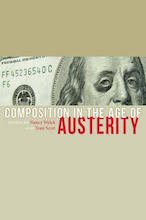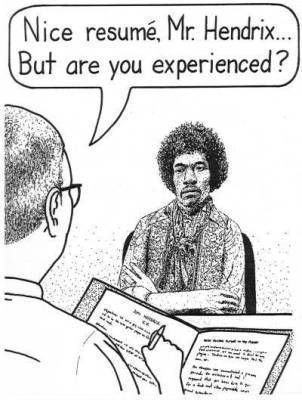

One interest I had in reviewing this work was to situate it within and between two major conversations in writing studies: on the one hand, the critical studies model of composition focused on ideological critique designed to actively intervene in socio-political matters, and on the other, the new materialist model of composition that traces networks, bodies, tools, spaces, and inventions under a broad range of procedures aimed at discovering the sorts of grammars and environments by which things come to be and persist in the world. How might the latter insights bear on our diagnoses of injustice or on our formulation of ways to intervene in the world? I do not think the different starting points to do these things are entirely incompatible and, judging from this volume, I am not alone.
Overall, the collection is worthy of praise for including a range of insightful contributions, both theoretically and with regards to academic rank and situation. Nancy Welch and Tony Scott demonstrated commendable editorial judgement on such a controversial and emotional topic. The details presented here are compelling and, though the situation may be dire, demonstrating the hard work and careful thought involved at national, local, and community levels is a valuable step toward whatever kind of recovery might attend a (re)turn to literacy advocacy and justification for sponsorship. To this end, I think the cases presented in this volume can insipire and, rather than create a national movement, offer hope for smaller-scale successes. It is upon those successes that a (re)turn to advocacy will grow.

The volume could have stayed more true to its title and given focus to austerity, rather than use that term as a cover for neoliberalism. Governmental retreat from higher education and public literacy can be attributed to neoliberal thinking, though I am not convinced the term is used as precisely as it should be, given the history of the term and it various uses. Still, the editors present a worldview of their own which is not without merit. They also demonstrate that theirs is not the only possible worldview, though the volume leans heavily toward it under their editorship.
Theoretically, the tension between experience and assesment is the most rich and compelling aspect across contributions. It seems to signal a basic difference in orientation within the field of composition, one rooted in historical developments and responses to other moments of acclaim and crisis for composition's work. It reminded me of the skills vs. qualities debates that seem to always hold a place for something deeper and more mystical about writing and composition, something ineffable that can never be captured or measured with talk of skills or outcomes. I agree that skills and outcomes can never capture the full range of what happens when someone composes a text, either on a page or electronically. The urge to ground the field in experience is therefore good and necessary, so we are compelled to stay restless. Yet we cannot let the perfect be the enemy of the good, either. This volume, thankfully, does not let it come to that, but the tension is there and useful for thinking with.
While the book takes its own troubling turns, I certainly hope this collection inspires and furthers related discussions among graduate and undergraduate students, tenure and non-tenure track faculty, community leaders, legislators, and parents, all of whom have a vested interest in quality instruction and can learn from the voices here. The editorial job is excellent in terms of both selection and curation, and Welch and Scott have made a solid contribution to the field by addressing a range of questions from the political to the theoretical to the very practical. Not all will agree with the contributions or the volume's take on neoliberalism, but it nonetheless offers an important node in our thinking about our work, be that teaching, scholarship, service, advocacy, craft, or just simply writing.
Continue to References.